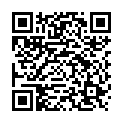|
|
|
| Module code: FT09.2 |
|
|
4V (4 hours per week) |
|
4 |
| Semester: 2 |
| Mandatory course: yes |
Language of instruction:
German |
Assessment:
Written exam 180 min.
[updated 30.09.2020]
|
FT09.2 (P242-0070) Automotive Engineering, Bachelor, ASPO 01.10.2015
, semester 2, mandatory course
FT09.2 (P242-0070) Automotive Engineering, Bachelor, ASPO 01.04.2016
, semester 2, mandatory course
FT09.2 (P242-0070) Automotive Engineering, Bachelor, ASPO 01.10.2019
, semester 2, mandatory course
|
60 class hours (= 45 clock hours) over a 15-week period.
The total student study time is 120 hours (equivalent to 4 ECTS credits).
There are therefore 75 hours available for class preparation and follow-up work and exam preparation.
|
Recommended prerequisites (modules):
None.
|
Recommended as prerequisite for:
FT16.1 Vehicle Superstructures and Lightweight Construction
FT19.1 Passive Vehicle Safety
FT26.1 Project Work 1
[updated 06.05.2016]
|
Module coordinator:
Prof. Dr.-Ing. Ramona Hoffmann |
Lecturer:
M.Eng. Daniel Lehser-Pfeffermann
[updated 25.04.2019]
|
Learning outcomes:
After successfully completing this course, students will be able to:
- describe the structure, properties and function of frequently used construction and machine elements
- select and dimension these elements according to their application
- design small assemblies of technical products and evaluate them from a technical point of view
[updated 30.09.2020]
|
Module content:
1. Introduction - machine elements
2. Spring and suspensions
3. Screws and screw connections
4. Bearings and mountings
5. Keyed joints
6. Axles and shafts
[updated 30.09.2020]
|
Teaching methods/Media:
Interactive lectures and tutorials /
Lecture notes with exercises, objects for demonstrations
[updated 30.09.2020]
|
Recommended or required reading:
/1/ Wittel, H.; Muhs, D.; Jannasch, D.; Voßiek, J.: Roloff/Matek - Maschinenelemente. 23. Auflage. Wiesbaden: Vieweg+Teuber Fachverlage 2017
/2/ Decker, K. H. u.a.: Maschinenelemente. 20. Auflage, München: Carl Hanser Verlag 2018
/3/ Grote, K.-H.; Bender, B.; Göhlich, D.: Dubbel _ Taschenbuch für den Maschinenbau. 25. Auflage. Berlin: Springer Vieweg 2018
[updated 30.09.2020]
|


